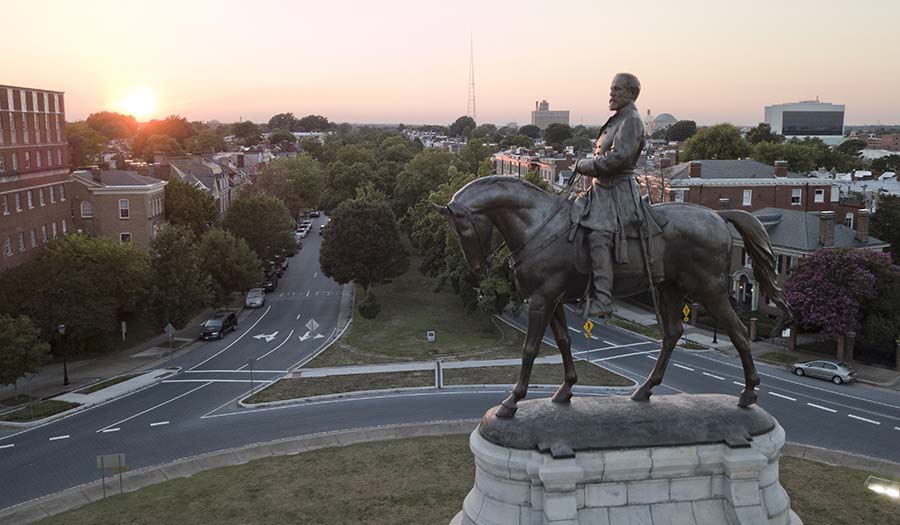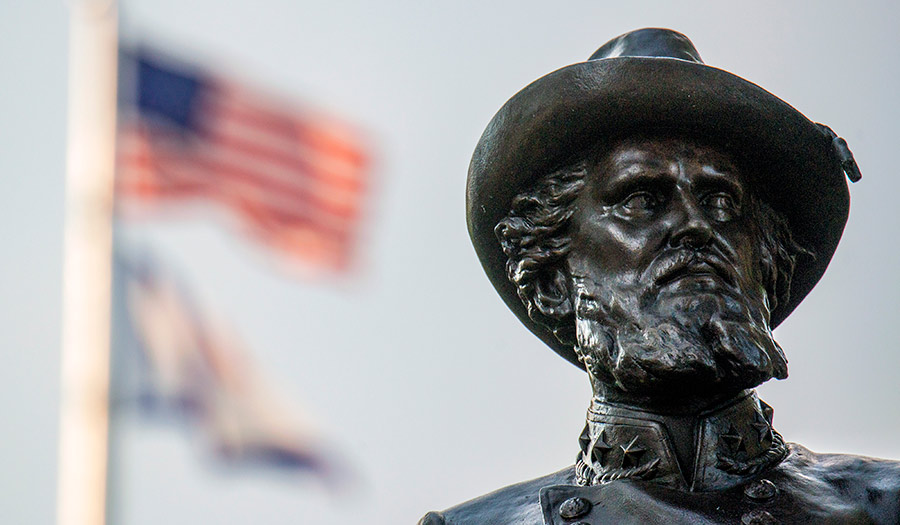 AP Photo/Steve Helber
AP Photo/Steve Helber
World News Desk
Learn the why behind the headlines.
Subscribe to the Real Truth for FREE news and analysis.
Subscribe NowFALLS CHURCH, Va. (AP) – In a state where Confederate
monuments have stood for more than a century and have recently become a
flashpoint in the national debate over racial injustice, Virginians remain
about evenly divided on whether the statues should stay or go, according to a
new poll.
The poll conducted this month by Hampton University and The
Associated Press-NORC Center for Public Affairs Research found that 46% support
removal of Confederate statues and 42% oppose removal. A similar divide emerged
over the question of changing the names of schools, streets and military bases
named after Confederate leaders, with 44% in support and 43% opposed.
The question of the Confederacy’s legacy in Virginia is
particularly pointed given that Richmond is the former Confederate capital.
Protests in Richmond and other parts of the state this year have at times
targeted longstanding Confederate memorials.
City officials have removed most of the statues from
Richmond’s famed Monument Avenue. But the most prominent one, a towering
tribute to Confederate Gen. Robert E. Lee, still stands pending resolution of a
lawsuit. The statue is owned by the state.
Clayton Collins, 84, a retired electrician, said he strongly
opposes removing the monuments because they are “part of history.”
Yet the views of Mr. Collins are just one side of the
argument.
“I just can’t really understand why anyone doesn’t see those
monuments for what they actually are,” said Joanne Bach, 59.
“They were put up as a reminder for blacks to stay in their
place…that you live in a white-dominated world,” she said. “And I find them to
be intimidating.”
Ms. Bach works in customer service in the food industry. She
said her great-grandfather fought for the Confederacy and was captured at the
pivotal Battle of Gettysburg.
“But it doesn’t, in any way, make me feel like I’m a
daughter of the Confederacy who thinks, ‘I wish we’d have won the war,’” she
said.
Unlike Ms. Bach, however, Mr. Collins said the statues are “not
intimidating anybody.”
“It’s just the same thing as putting up the crucifixion of
Christ or the manger scene,” he said, adding that the efforts to remove
monuments are part of a broader effort by “socialists” who “want to do away
with the past” and ban conservatives from speaking at universities.
The 2017 white nationalist rally in Charlottesville that
left a counterprotester dead had its origins in a city debate over whether to
remove Confederate statues.
While the poll found a nearly even split on the question of
Confederate statues and names, it found more consensus on whether the
Confederate flag should be banned from display on government property, with 60%
supporting a ban and 29% opposed.
- Real Truth Magazine Articles
- ANALYSIS
 History or Hatred? – The War Over Confederate Statues
History or Hatred? – The War Over Confederate Statues


